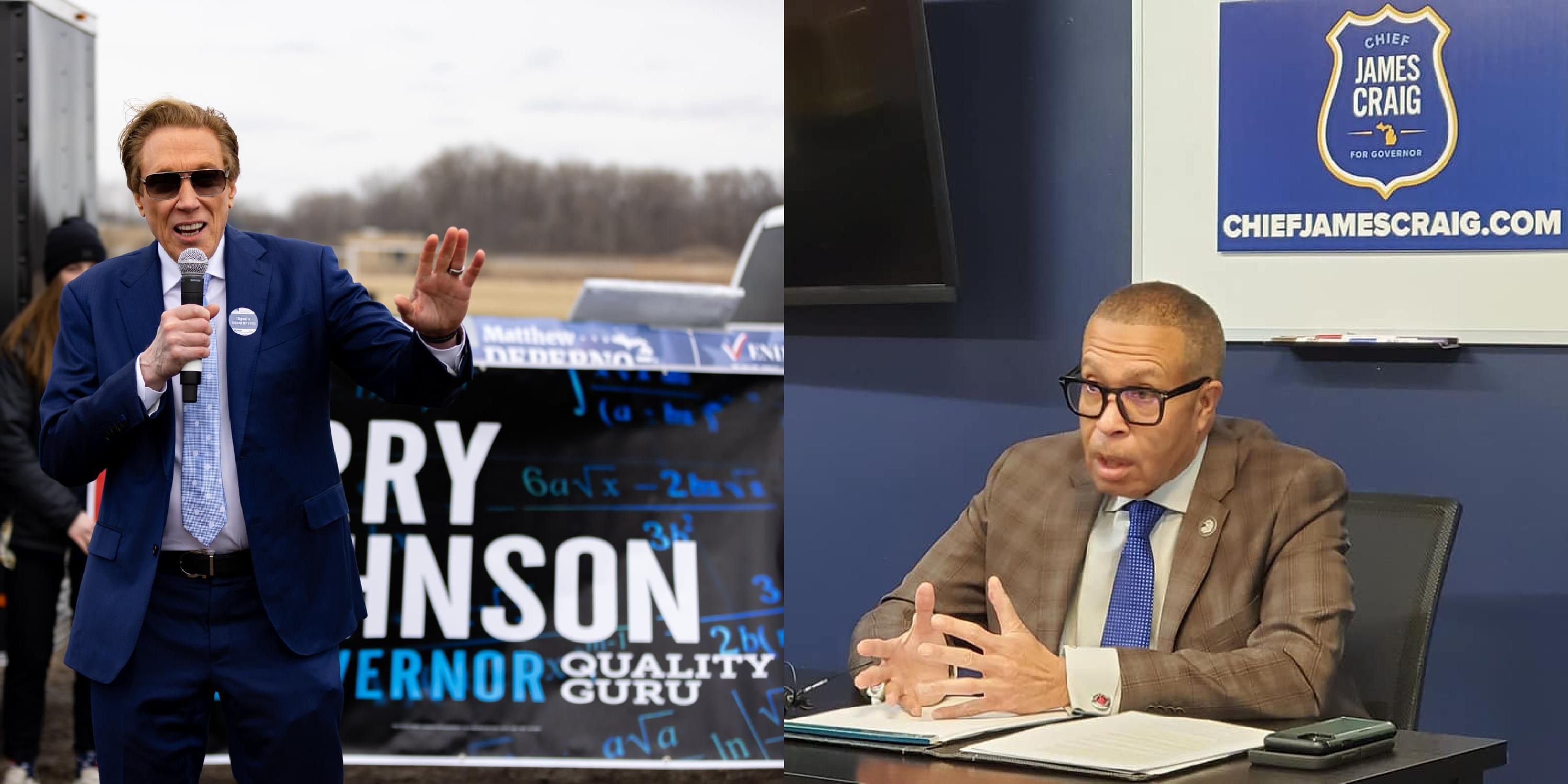
After weeks of allegations that multiple Republicans running for governor in Michigan submitted fraudulent signatures to get on the ballot, the state Bureau of Elections on Monday confirmed what one journalist called "wholesale fraud" involving five GOP candidates.
"I hope the Michigan Republican Party will live up to their big talk about integrity, respect our election laws, and hold their own accountable."
"For all the Michigan GOP's feigned outrage over 'election integrity,' several of their candidates seem very comfortable with using shady, underhanded tactics to get on the ballot," said Lonnie Scott, executive director of Progress Michigan, in an apparent reference to 2020.
Though President Joe Biden won Michigan by over 150,000 votes, the state was included in former President Donald Trump's "Big Lie" that the election was stolen. Trump and others unsuccessfully pressured the Board of State Canvassers to refuse to certify the results.
While Michael Brown withdrew from the gubernatorial race after Monday's revelation, the Board of State Canvassers—made up of two Democrats and two Republicans—will vote Thursday on whether to disqualify Donna Brandenburg, James Craig, Perry Johnson, and Michael Markey Jr.
Factoring in thousands of fraudulent entries, those five Republicans fell short of the necessary 15,000 signatures, according to the Bureau of Elections. The candidates, who were also required to have 100 names from each of at least half of the state's congressional districts, were allowed to submit 30,000 signatures in total.
If they are all disqualified from participating in the August 2 primary, the five remaining contenders will be Tudor Dixon, Ryan Kelley, Ralph Rebandt, Kevin Rinke, and Garrett Soldano. The winner will face off against the incumbent Democrat, Gov. Gretchen Whitmer, in November.
"It looks like the Republican clown car may be losing a few occupants, including the self-proclaimed quality guru who apparently didn't check the quality of his own signatures and the former police chief who seems to have brought corruption with him from his days at [the Detroit Police Department]," said Scott, referring to Johnson and Craig. "I hope the Michigan Republican Party will live up to their big talk about integrity, respect our election laws, and hold their own accountable when the board of canvassers meet this week."
As MLive reported late Monday:
Craig has been the favorite in the polls for months. In the most recent two polls of Michigan Republicans, Craig polled at 34.4% and 23%—more than double the support of any other candidate.
Johnson was becoming one of the favorites. He was one of the last to jump in the race this winter, pledging $2 million of his own money toward his candidacy and going as far as airing a commercial during the Super Bowl.
The Bureau of Elections explains in its official report that staff "identified 36 petition circulators who submitted fraudulent petition sheets consisting entirely of invalid signatures." Sheets from these people, who are named in the document, "displayed suspicious patterns indicative of fraud, and staff reviewing these signatures against the Qualified Voter File (QVF) did not identify any signatures that appeared to be submitted by a registered voter."
"In total, the bureau estimates that these circulators submitted at least 68,000 invalid signatures submitted across 10 sets of nominating petitions," the report continues. "In several instances, the number of invalid signatures submitted by these circulators was the reason a candidate had an insufficient number of valid signatures."
"Although it is typical for staff to encounter some signatures of dubious authenticity scattered within nominating petitions," the document notes, "the bureau is unaware of another election cycle in which this many circulators submitted such a substantial volume of fraudulent petition sheets consisting of invalid signatures, nor an instance in which it affected as many candidate petitions as at present."
The report says that staff are "working with the Michigan Department of State's Office of Investigative Services to refer incidents of apparent fraud to law enforcement for criminal investigation," and "at this point, the bureau does not have reason to believe that any specific candidates or campaigns were aware of the activities of fraudulent-petition circulators."
The document acknowledges media reports about the rising cost of hiring signature collectors.
Bridge Michigan reported last month that "this year, those professionals are feeling the same pressure felt in the rest of the economy: A lack of seasoned workers in Michigan has raised the cost of signature gathering up to $20 apiece—four times the rate of $5 to $7 per signature Ferndale businessman Shawn Wilmoth charged four years ago."
"First time in years I've seen numbers like this in Michigan," Wilmoth, who runs First Choice Contracting LLC, told the outlet. "Costs have skyrocketed."
Others on Tuesday responded to the development by taking aim at the Republican Party.
Writer Alex Pareene "called it," tweeted Ryan Cooper, managing editor of The American Prospect, linking to a March newsletter. "We're going to see more and more sundry electoral fraud and it's going to be Republicans doing it."
This content originally appeared on Common Dreams - Breaking News & Views for the Progressive Community and was authored by Jessica Corbett.
Jessica Corbett | Radio Free (2022-05-24T18:15:21+00:00) ‘Wholesale Fraud’ in Michigan Governor Race Could Disqualify GOP Candidates. Retrieved from https://www.radiofree.org/2022/05/24/wholesale-fraud-in-michigan-governor-race-could-disqualify-gop-candidates/
Please log in to upload a file.
There are no updates yet.
Click the Upload button above to add an update.